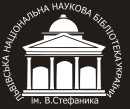DOI: https://doi.org/10.37222/2524-0331-2020-10(28)-22
Finkler Yuri
Mass media in the power framework: institutionalization revisited
Abstract:
The definitions of the institute and the institutionalization in the different fields of science (scholarship) vary. Specifically this refers to the understanding of the institutionalization of the mass media, whose activities are greatly dependent on the authorities. In Ukraine, such dependence has been particularly salient during the last time. The article aims at studying the existing definitions of the institutions of both social phenomena. An analysis of the institute of comparison and interpenetration of media and power as a social communication сoncept has been offered. A concept of institutionalization of the mass media is analyzed in terms of content structure and personal freedom of journalist. Specificity of several specialized aspects of media institutionalization in the context of the existence of different types and forms of competition and cooperation between universal and specialized publication sand journalists are analyzed. Different subtypes of journalism and relevant social trends, as well as a degree of interaction between professional and commercial dimensions of journalistic sphere are analyzed. It is emphasized that debates on mass media institutionalization focus on two dilemmas: the «journalist-professional» and «the journalist-ordinary member of society». Such discussion relates to the social significance of the problem and to professionalism of the media and journalists. The authorities can reduce social importance of institutionalization of the mass media, as well as they can downplay it purportedly. But social institutionalization of the mass media does not disappear because of the whims of the current authorities. We argue if the current Ukrainian authorities took into account the main factors of the institutionalization of the media and the correlation between journalistic and social practices, it would make fewer mistakes in its work with the media (which cannot be destroyed by institutionalization). The followup studies on the research problem outlined in the article are to study definitions of institutionalization of social and communication characteristics of cluster institutions: legal, economic sociological and so on. Socio-communicative understanding of the concept of the institution in its modus operandi will enable systematizing knowledge about institutionalization of many social phenomena that serve the mass media.
Keywords: author, power, journalist, category, institutionalization, content, mass media, professionalism, social effect, specialization, universality.
References:
- Beh, Yu. V. (2013). Filosofs`ky`j modus zagal`noyi teoriyi upravlinnya: monografiya [The Philosophical Modus of General Management Theory: A Monograph], Kiev, Vy`d-vo NPU imeni M. P. Dragomanova, 478 s. (in Ukr.).
- Gricenko, O. (2019). Novi formy demokratiji, politychna komunikaciya I gromadjans’ke suspil’stvo [New forms of Democracy, Political Communication and Civil Society], Visnyk L’vivs’kogo Universytetu. Serija Zhurnalistyka, vyp. 46, s. 244—251. (in Ukr.).
- Pastushenko, O. V. (2018). Philosofs’ki aspekty ponyat’ instytucionalizaciji vlady ta prava: postanovka problemy [Philosophical Aspects of Concepts of Institutionalization of Power and Law: Statement of the Problem], Gilea: The Bulletin of Science, vyp. 132, s. 268—272. (in Ukr.).
- Finkler, Y. (2003). Mas-media ta vlada: technologija vzajemyn [Mass Media and Power: Relationship Technology]: monographia, Instytut zhurnalistyky KNU im. T. Shevchenka, Lviv, Az-Art, 212 s. (in Ukr.).
- Chorna, K. (2019). Liberal’na ideja v derzhavno-upravlins’kiji dijal’nosti: vyklyky dlya Ukrajiny [The Liberal Idea in Public Administration: Challenges for Ukraine], Publichne upravlinnya ta mytne administrunannia, no. 2(21), s. 20—25. (in Ukr.).
- Cock, T. E. (1998). Governing with the News, The News Media as a Political Institution, Chicago, University of Chicago Press, 473 p. (in Eng.).
- Furubotn, E. G. & Richter, R. (1997). Institutions and Economic Theory: The Contribution of the New Institutional Economics, Michigan, The University of Michigan Press. (in Eng.).
- Gobert, J. J. (2019). Justice, Democracy and the Jury, Dartmouth Publishing Co Ltd, 300 р. (in Eng.).
- Kaminski, M. (1991). Instytucje i organizacje, Warszawa, 1991. (in Pol.).
- Latour, B. (2000). When things strike back: a possible contribution of ´science studiesª to the social sciences, British Journal of sociology, vol. 51, no.1 (January/March), p. 107—123. (in Eng.).
- Mannheim, K. (1935). Mensch und Gesellschaft im Zeitalter des Umbaus, Leiden, Sijthoff, 207 р. (in Eng.).
- The Commission on Freedom of the Press (1947). A Free and Responsible Press: A General Report on Mass Communication, Newspapers, Radio, Motion Pictures, Magazines and Books, Chicago, The University of Chicago Press, 138 р. (in Eng.).
- Thomas, T., Casebeer, B. & Kiser, S. (2005). Warlords rising: Confronting violent non-state actors, Lanham, 264 p. (in Eng.).
